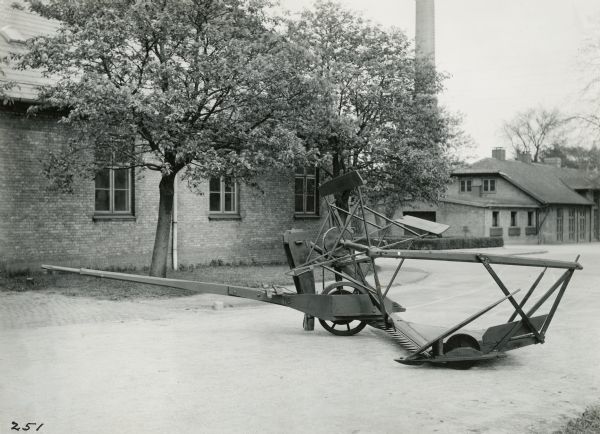

This settled the controversy: Parsons, Spies and all the active revolutionary spirits in Chicago went to work in earnest. Parsons, editor of The Alarm (English weekly), to advocate in their paper and speeches, the eight-hour day. The Central Labor Union of Chicago, consisting of 25,000 German trades unionists, passed a resolution, requesting August Spies, editor of the Arbeiter-Zeitung (German daily), and Albert R. This would diminish the profits of the labor exploiters. Now, this means a higher standard of living for the producers, which can only be acquired by possessing and consuming a larger share of their own product. Reduced hours is the only measure of economic reform which consults the interests of the laborers as consumers. Reduced hours, or eight-hours, is the peace-offering. I have always held that there were two ways to settle this trouble, either by peaceable means or violent methods. The movement to reduce the work-hours is intended by its projectors to give a peaceful solution to the difficulties between the capitalists and laborers. Parsons printed in the Chicago Daily News, March 13, 1886:

The radical element in Chicago were divided as to what position they should take regarding the proposed strike, some taking the position that it was only a palliative at best, that it was not worth such a gigantic struggle as must be engaged in, if it was to succeed.įollowing is part of an interview by Albert R. The Knights of Labor was not represented at the above mentioned convention and did not participate in the strike as a national organization, but many of the “Assemblies” did so.

In October 1885, a convention of labor organizations was held in Chicago at said convention a resolution was passed, requesting the working class to set aside the First of May, 1886, to demand a reduction of the hours of the workers to eight. The first great strike of America for a reduction of hours of labor to eight per day occurred on May First, 1886. If they should stop to think they would soon better their condition. I say it will be well for them to stop for one day at least, and take stock of their stock-that is of themselves, and see if it is worth while for them to spend three-fourths of their time toiling for a bare existence: not for a living, for the vast majority of them do not live, they barely exist. It would be well if the working class would heed the call of the IWW and cease to labor on the first day of May and take stock of themselves and try to realize what space of time elapses from the time they offer their labor to the boss, at about fifteen years-in other words, when they place their capital on the market, “capital” which consists of stored-up power in their muscles and brains-to their forty-fifth or fiftieth year, when the best there was in them has been used up by the boss and they are flung out upon the human scrap-heap as useless material, with nothing more to be ground out of them for the benefit of the boss. If he has run his two- or three-score years between the cradle and the grave, and has occupied every moment of that time to the very best advantage possible, he has accomplished very little indeed.

There is so little that he can accomplish between the time that his mother implants her first mother-love kiss upon his newborn cheek to when death has clasped him in its cold embrace. It has taken eons of time to develop every particle of matter in the universe, man included, yet time to man is so short and precious. In fact, while it seems to be a palliative on the face of it, it is in reality not a palliative at all, but a revolutionary measure, because time is the greatest factor in our existence. A reduction of the working time is the most just and practical palliative that can be injected into the issue between labor and capital. Of course if the working class are not sufficiently awake to their own interests to come out and stand like men for this very just and modest demand, the IWW will not abandon the agitation on the contrary, it may agitate for a still shorter work day, so as to keep pace, to some extent at least, with the advance in labor-saving (labor-destroying) machinery. The IWW is urging the workers to set aside the first of May, 1912 to demand of the master class an eight-hour working day. This young child is the progeny of a long line of the Earth’s stalwarts who have engaged in the onward march towards a better world. It is a child vigorous and aggressive, gaining in strength, expanding in power, and commanding attention and respect. The Industrial Workers of the World is the last child born of the great surging struggle in the world’s arena between labor and capital.


 0 kommentar(er)
0 kommentar(er)
